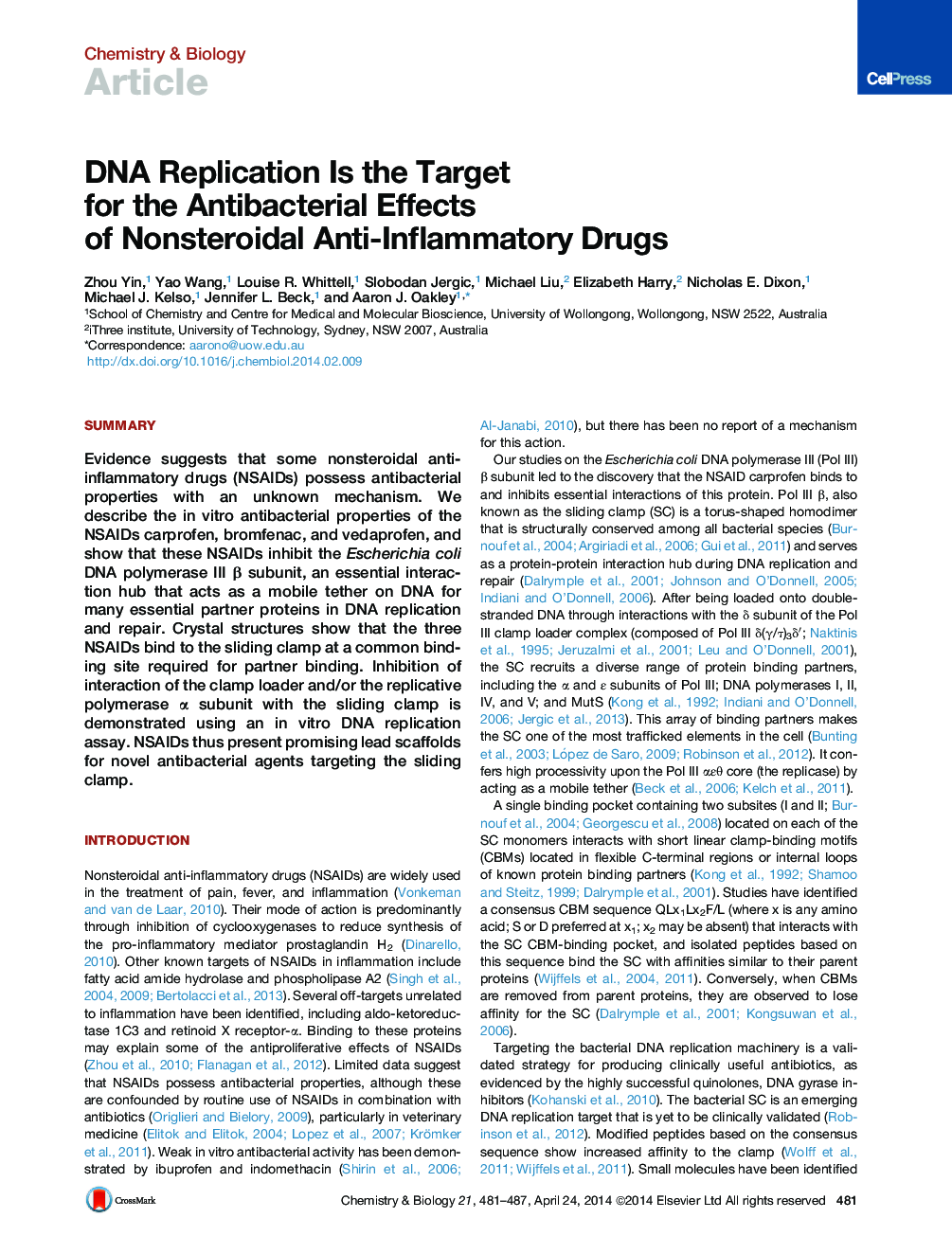| Article ID | Journal | Published Year | Pages | File Type |
|---|---|---|---|---|
| 1391094 | Chemistry & Biology | 2014 | 7 Pages |
•Some NSAIDs with in vitro antibacterial activity inhibit the E. coli sliding clamp•These NSAIDs bind to a pocket essential for the sliding clamp’s binding partners•NSAIDs inhibit sliding-clamp-dependent DNA replication
SummaryEvidence suggests that some nonsteroidal anti-inflammatory drugs (NSAIDs) possess antibacterial properties with an unknown mechanism. We describe the in vitro antibacterial properties of the NSAIDs carprofen, bromfenac, and vedaprofen, and show that these NSAIDs inhibit the Escherichia coli DNA polymerase III β subunit, an essential interaction hub that acts as a mobile tether on DNA for many essential partner proteins in DNA replication and repair. Crystal structures show that the three NSAIDs bind to the sliding clamp at a common binding site required for partner binding. Inhibition of interaction of the clamp loader and/or the replicative polymerase α subunit with the sliding clamp is demonstrated using an in vitro DNA replication assay. NSAIDs thus present promising lead scaffolds for novel antibacterial agents targeting the sliding clamp.
Graphical AbstractFigure optionsDownload full-size imageDownload high-quality image (239 K)Download as PowerPoint slide
